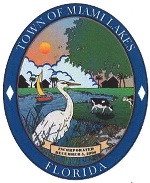At the December 4th Council meeting, the Town Council passed a new business item directing the Town Manager to investigate the cost of banning or restricting glyphosate-based herbicides in public parks and lakes. In addition, it was requested that studies be provided on the medical impact of glyphosate on humans. Attached are studies related to this topic.
Glyphosate, the active ingredient in the world's most widely used weed killers has long been regarded by government agencies including the Environmental Protection Agency (EPA), as economical, broadly effective, low-toxicity and environmentally benign. In 2015, however, glyphosate was classified as “probably carcinogenic to humans” by the World Health Organization's International Agency for Research on Cancer (IARC). The studies were an analysis of published and peer reviewed reports of mostly agricultural exposures in the US, Sweden, and Canada performed after 2001. Both EPA and IARC had conflicting views after a review of the tissue slides were analyzed by an independent panel of expert pathologists. Since the IARC's departure from the prevailing governmental posture on the chemical, there has been a proliferation of conflicting opinions on where the truth lies.
In December 2017, the EPA released a draft human health risk assessment for glyphosate, concluding that it is “not likely to be carcinogenic to humans” and found “no other meaningful risks to human health” when used according to published directions. The EPA conclusion agrees with virtually every major regulatory body in the world, (IARC, not a regulatory body, excepted) and includes the latest observation of enrollees in the Agricultural Healthy Study, National Cancer Institute, National Institute of Environmental Health Sciences and the National Institute for Occupational Safety and Health. It is the largest ever pesticide study with over 50,000 farmers in North Carolina and Iowa participating over 25+ years. A final opinion is due from EPA this year.
However, not everyone agrees with the EPA's conclusion on glyphosate. In the US, several cities, counties, and even one state have issued bans, restrictions or warnings on glyphosate as a result of the ongoing health concerns. Cities in Florida include North Miami, Miami Beach, and Stuart.
The Town's Grounds and Lake Maintenance vendors currently use products with Glyphosate but have adopted Best Management Practices (BMP) for landscaped and aquatic areas in Town's Parks, Lakes and Right-of-ways. The BMP, developed by University of Florida, promotes the conservation of water using site adapted plans and efficient watering methods, which generally result in a long-term reduction of irrigation, fertilizer, and pesticide requirements, costs, energy, and maintenance. Herbicide applications are selectively applied in targeted areas of weed growth.
There are alternatives to glyphosate, each of these alternatives will be, in some way, less effective, less convenient, and more expensive for use in landscape areas. Pricing was obtained for alternate options and staff noted a significate cost increase of about 490% on average for these alternate herbicide applications across the board. In aquatic areas, our vendor advised that there are no recommended effective alternatives other than glyphosate based products.
Glysphosate product price comparison
